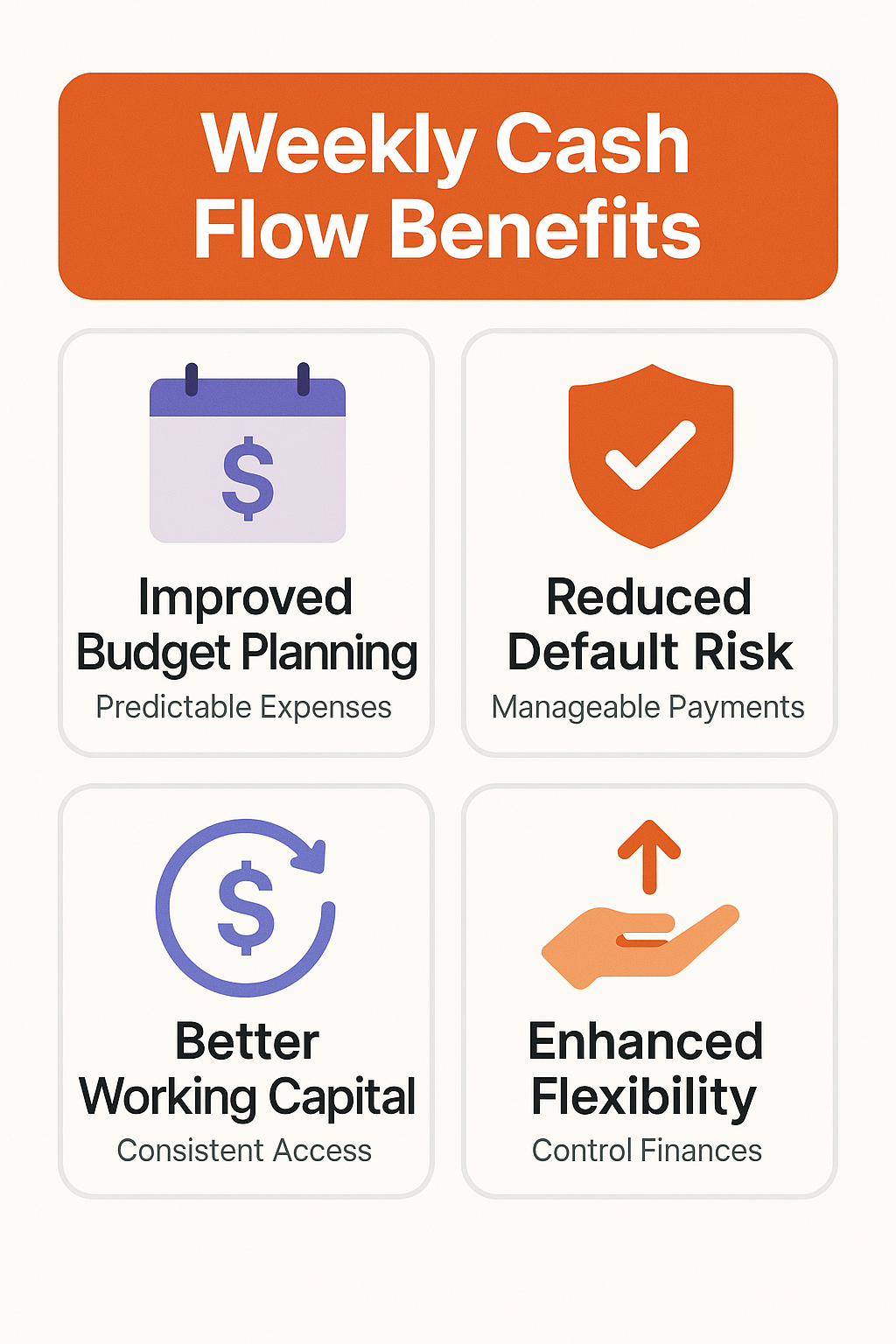Weekly repayment business loans offer a unique payment structure that can align with your business's natural cash flow cycles. Unlike traditional monthly payments, these loans allow for more frequent, smaller installments that can better match your revenue patterns. Understanding how to leverage this payment schedule can improve your budget planning and reduce default risk.
Understanding Weekly Payment Structures
Weekly repayment business loans divide your total loan obligation into smaller, more manageable payments due every seven days. This payment frequency can be particularly beneficial for businesses with consistent weekly revenue streams, such as restaurants, retail stores, or service providers. Short-term business loans commonly feature these flexible repayment periods ranging from three to 24 months, allowing merchants to tailor payments to their specific cash flow cycles.
The structure enables better cash flow matching by aligning loan payments with your business's revenue generation pattern. Instead of facing one large monthly payment that might strain your finances during slow weeks, you make smaller weekly contributions that feel more manageable. This approach helps maintain consistent working capital while meeting your debt obligations.
Long-term business loans may also offer weekly or biweekly payment options, giving you the flexibility to choose a schedule that best fits your operational needs. The key advantage lies in the predictability and smaller payment amounts that reduce the financial pressure on any single payment date.
Benefits of Weekly Cash Flow Matching

Weekly cash flow matching provides several operational advantages that can strengthen your business's financial position:
- Improved Budget Planning: Weekly payments create more predictable cash flow requirements, making it easier to plan for operational expenses and growth investments without worrying about large monthly obligations.
- Reduced Default Risk: Smaller, frequent payments are typically easier to manage than large lump sums, reducing the likelihood of missed payments and protecting your credit standing.
- Better Working Capital Management: By spreading payments across multiple weeks, you maintain more consistent access to working capital for daily operations, inventory purchases, and unexpected opportunities.
- Enhanced Financial Flexibility: Weekly schedules allow you to adjust other expenses more easily around loan payments, giving you greater control over your business finances.
Choosing the Right Loan Structuring Approach
Selecting the appropriate loan structuring depends on your specific business circumstances and cash flow patterns:
- Short-Term Options: Consider short-term loans with weekly payments for immediate capital needs, equipment purchases, or seasonal inventory buildup where quick repayment aligns with expected revenue increases.
- Long-Term Considerations: Evaluate long-term loans with weekly payments for major expansions, real estate purchases, or substantial equipment investments where extended repayment terms provide breathing room.
- Payment Relief Programs: Explore options like temporary payment reductions or deferrals that can provide cash flow relief during challenging periods, helping you maintain financial stability without defaulting.
- Revenue-Based Timing: Match your loan structure to your business model, choosing weekly payments if your revenue comes in consistently throughout the week rather than in monthly cycles.
Weekly repayment business loans can provide the payment flexibility your business needs to maintain healthy cash flow while accessing necessary capital. By carefully matching your payment schedule to your revenue patterns, you can reduce financial stress and improve your chances of successful loan repayment. Consider working with lenders who understand your industry's cash flow dynamics to structure a loan that supports your business growth.

.png)






